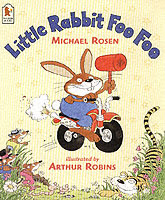The author who created the memoir of a meerkat; A Simples Life: My Life and Times by Aleksandr Orlov, has been revealed as Val Hudson. For those of you who are not aware of the meerkat phenomenon (I'm not sure how global this craze is), the meerkat's shot to fame in a GoCompare advert have captured the hearts of a nation. To see what all the fuss is about I suggest you view the compare compare the market/compare the meerkat and jacuzzi meerkat adverts. So far the craze has not only made GoCompare a raging success, but Clinton's cards cashed in on a Meerkat range of bookmarks, mugs and other merchandise, and Boots offer an adopt a meerkat gift. Now Val Hudson, a former publisher for various publishing houses including HarperCollins and Headline, is set to make millions. Currently A Simples Life is number two in the bestsellers chart, rating higher than Tony Blair's and Keith Richard's autobiographies. Whilst I'm not convinced on the literary credentials of such a piece of work, I am curious to read the memoir of an infamous meerkat.
As most of you probably know, tomorrow marks the beginning of National Novel Writing Month. Not suprisingly, the aim is to write a novel in a month, that's 50,000 words in 30 days. Though not technically difficult, as this involves writing only 1666 words a day, surely few masterpieces can have been written in such a short space on time? Apparently not. Enid Blyton claimed to write, on average, 10,000 words a day, and according to Lindsey Grant who helps run NaNoWriMo (the site in which all the novels written during NNWM are uploaded) 55 of the books submitted last year were published, including Gruen for Elephants by Sara Gruen which spent six weeks on the New York Times bestseller list. As an article in the Independent today reveals, many masterpieces have been created in a short space of time...
A Christmas Carol By Charles Dickens, written in six weeks in 1843
As I Lay Dying By William Faulkner, written in six weeks in 1930
The Prime of Miss Jean Brodie By Muriel Spark, written in one month in 1960
The Tortoise and the Hare By Elizabeth Jenkins, written in three weeks in 1954
Devil May Care By Sebastian Faulks, written in six weeks in 2008
I also spied a couple of interesting reviews in the papers. The first, in the Daily Mail You Magazine Reading Group, is for Agnes Grey by Anne Bronte. Reviewed in their Retro Reads section, the book offers an insight in to the limited opportunities for educated, middle-class Victorian Spinsters. As those of you who read my blog regularly will no, I'm interested in history, and I've also been trying to expand my literary horizon with a few older, classical reads, so this really appeals to me. Agnes Grey tells the tale of Agnes when her family plunges in to poverty and she is forced to take a job as a governess. The other that really captured my attention was in the New York Times, and is the third in a series by Dennis Lehane. Though I like to support the British Publishing market, this series could be worth investing in. Moonlight Mile, which continues on from Gone, Baby, Gone, and Prayers for Rain, tells of Amanda McCready's later teenage years as Patrick Kenzie is given the opportunity to put right his mistakes. The review claims that 'unlike the usual sequel writer who simply puts old creations through new paces, Mr. Lehane registers a deep affection for the Kenzie-Gennaro team and a passionate involvement in their problems. And he treats each book in this series as an occasion for wondering what kind of world can produce the depravity that each new plotline describes.'
And finally, I hope you have all enjoyed your Halloween. Don't watch too many scary movies this evening!

























